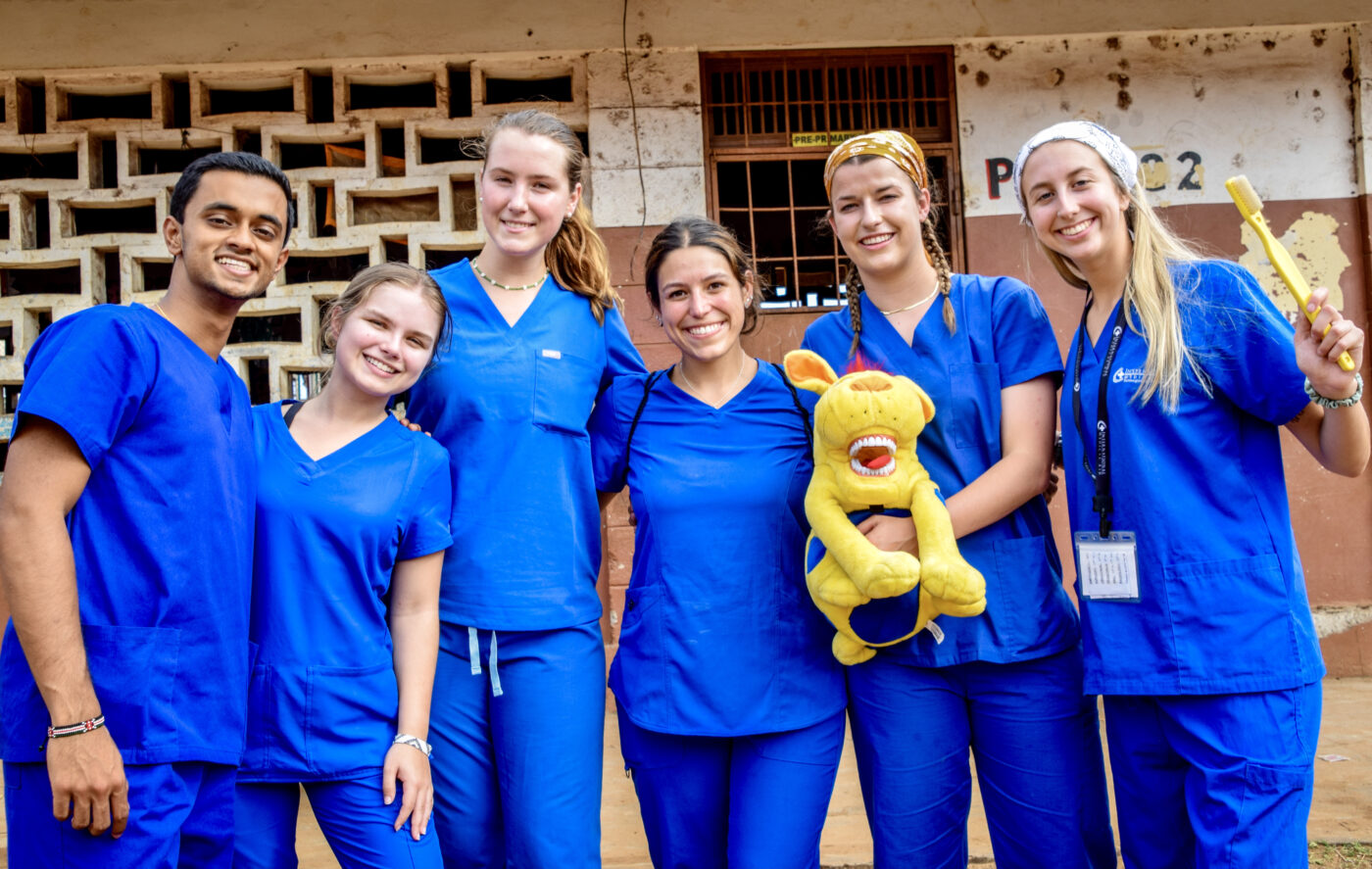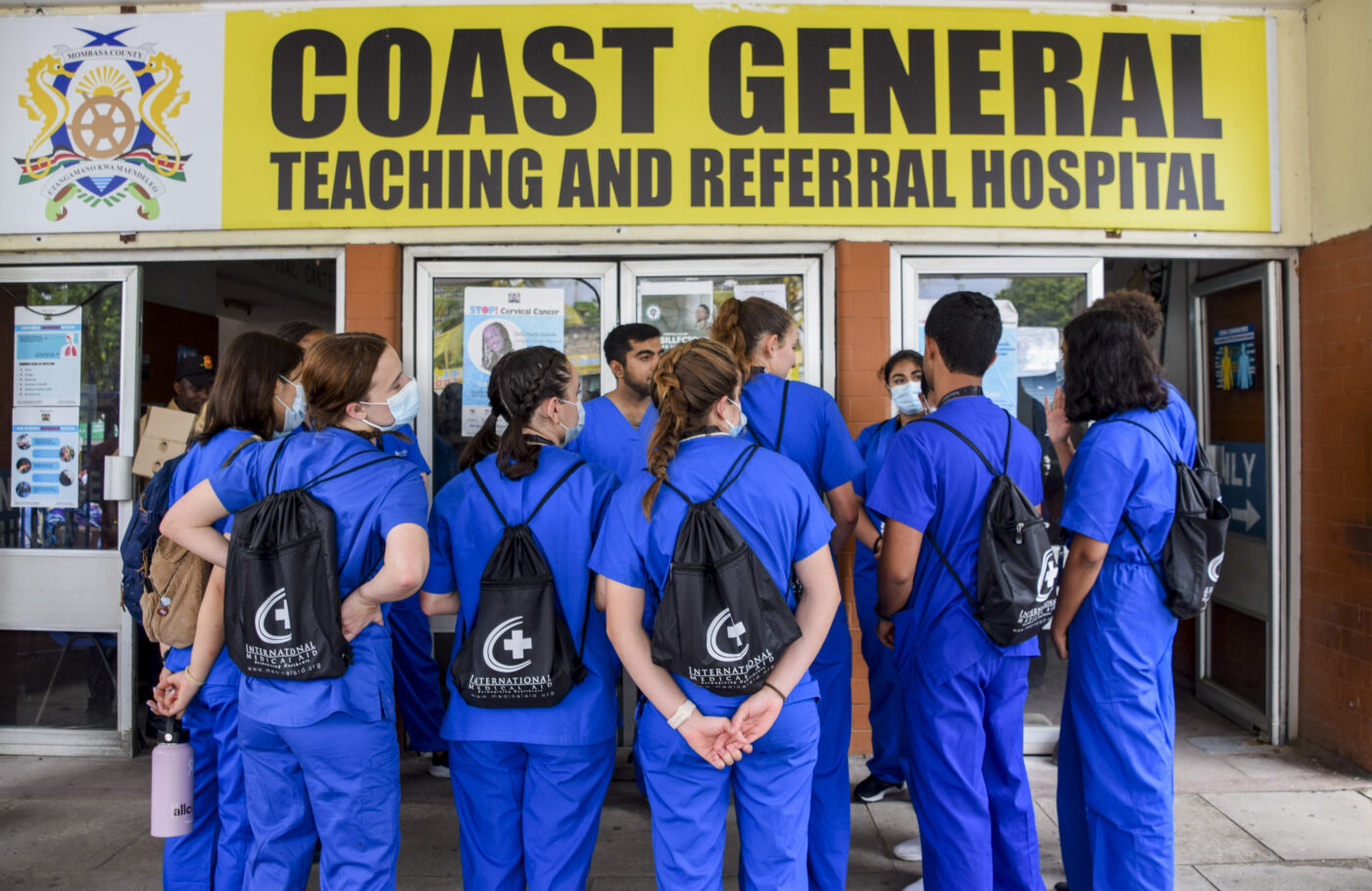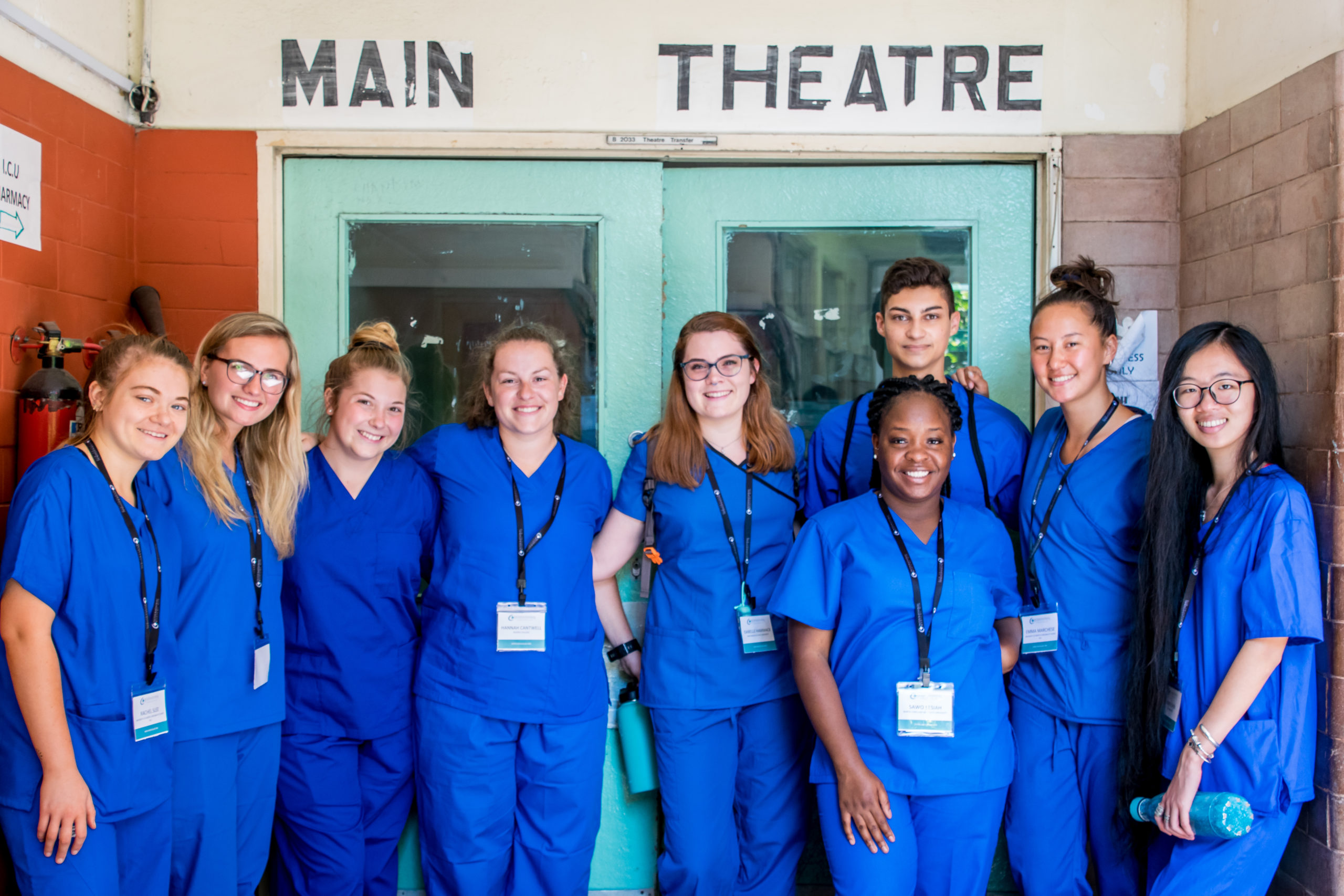Volunteering is an important aspect of the medical school application process; it demonstrates your commitment to the healthcare field. And can greatly increase your chances of being accepted. But how many volunteer hours for medical school do you need? Why is volunteering so important for premeds? What are the types of volunteering activities? By the end of this blog, you’ll be equipped with the knowledge and skills you need to navigate the medical school admission process successfully. So, take advantage of this opportunity to take the first step toward your dream career in the healthcare field.
Why Volunteering is Important for Pre-Meds
Practically speaking, your volunteer experience will be a crucial component of your pre-med application profile.
1. Demonstrates Commitment to Healthcare
Volunteering is an excellent way for pre-med students to demonstrate their commitment to healthcare and show that they are truly dedicated to pursuing a career in this field. When a pre-med student volunteers at a hospital, clinic, or other healthcare settings, they are making a statement that they are willing to give their time and energy to help others, even before they have officially entered the field. This shows admissions committees that the student is not just going through the motions, but that they truly care about healthcare and are motivated to make a difference.
By committing their time to volunteer, pre-med students can also demonstrate their passion for healthcare and their eagerness to learn more about the field. Through their volunteer work, they can gain valuable insights into what a career in healthcare entails and learn about the various aspects of patient care, medical procedures, and medical technology. This first-hand experience can provide pre-med students with a better understanding of the responsibilities of a healthcare professional and help them to better prepare for the challenges they may face in the future.
2. Develops Skills and Knowledge in Healthcare
Volunteering is an excellent way for pre-med students to develop skills and knowledge in healthcare, which can be extremely beneficial when it comes to getting into medical school. By participating in volunteer work, pre-med students can gain hands-on experience in a healthcare setting, which can provide them with the opportunity to observe medical procedures, interact with patients and healthcare professionals, and learn about different aspects of healthcare delivery.
Additionally, volunteering can also help pre-med students to develop critical thinking, problem-solving, and communication skills, all of which are essential for success in the medical field. For example, pre-med students may have the opportunity to work with patients with different needs, helping them to understand how to communicate effectively with individuals from diverse backgrounds. They may also be able to observe medical professionals as they diagnose and treat patients, helping them to develop their own problem-solving and critical-thinking skills.
3. Enhances Resume and Application
Volunteering can greatly enhance a pre-med student’s resume and application, helping them to stand out from the competition when applying to medical school. When pre-med students participate in volunteer work, they demonstrate their commitment to healthcare and their willingness to give back to the community. This not only shows admissions committees that the student is serious about their goals but also provides them with a deeper understanding of the medical field and what it entails.
In addition to volunteering, pre-med shadowing and study abroad programs can also greatly enhance a pre-med student’s resume and application. Shadowing provides pre-med students with an opportunity to observe healthcare professionals in their daily work, which can provide valuable insights into what a career in healthcare entails. Study abroad programs, on the other hand, provide pre-med students with the opportunity to learn about healthcare delivery in other countries and to gain a deeper understanding of global health issues.
4. Provides Networking Opportunities
Volunteering is an excellent way for pre-med students to take advantage of networking opportunities, which can be invaluable when it comes to getting into medical school and building a successful career in healthcare. By volunteering in a healthcare setting, pre-med students can interact with medical professionals, including doctors, nurses, and other healthcare providers, who can provide valuable insights into the medical field and offer guidance and advice about getting into medical school.
Additionally, volunteering can provide pre-med students with the opportunity to build relationships with other individuals who share their interests and goals. For example, pre-med students may meet other pre-med students, medical students, or healthcare professionals who are working in the same field. These relationships can provide pre-med students with a support network that can be helpful when it comes to applying to medical school and building a successful career in healthcare.
5. Offers Patient-Facing Experience in a Healthcare Setting
Volunteering is not only a valuable experience for pre-med students, but it also provides them with the opportunity to make a positive impact on the lives of others. By volunteering in a healthcare setting, pre-med students can help patients and communities in need, which can be a rewarding and fulfilling experience.
In addition, volunteering can also provide pre-med students with the opportunity to develop empathy and compassion, which are essential qualities for success in the medical field. By interacting with patients and learning about their experiences, pre-med students can develop a deeper understanding of the human experience and gain the skills and knowledge needed to provide compassionate and effective care to patients.
When it comes to applying to medical school, volunteer work is an important factor that admissions committees consider when evaluating applications. But, how many hours of volunteering do you need for medical school?
Volunteering Hours for Medical School
When applying to medical school, admissions committees look for evidence of a strong commitment to healthcare and a desire to make a positive impact on the lives of others. To demonstrate this commitment, many pre-med students choose to participate in volunteer work, which can include working in a healthcare setting, pre-med shadowing, or participating in a study abroad program.
While there is no set number of required volunteer hours for medical school, admissions committees typically look for a minimum of 100 hours of volunteer work. However, it is important to keep in mind that the quality of your volunteer work is more important than the number of hours. Admissions committees want to see that you have taken the time to engage in meaningful volunteer work that has provided you with real-world experience in healthcare and has helped you to make a positive impact on the lives of others.
How Many Volunteer Hours for Medical School?
Ultimately, the number of volunteer hours for medical school that you need will depend on the admissions policies of the medical schools to that you are applying. While some medical schools may require average volunteer hours for medical school of 100 hours of work, others may not have a specific requirement. To determine the number of volunteer hours required for medical school, it is important to research the admissions policies of the schools that you are interested in attending.
Types of Volunteer Activities
1. Healthcare Setting Volunteer Work
Healthcare setting volunteer work refers to volunteer opportunities that take place within a healthcare setting, such as a hospital or clinic. These types of volunteer activities can include assisting with patient care, helping with administrative tasks, or providing support to healthcare professionals. Healthcare setting volunteer work provides pre-med students with valuable hands-on experience in a medical setting and can help them to gain a deeper understanding of the healthcare system and the daily challenges that healthcare professionals face. By participating in healthcare setting volunteer work, pre-med students can gain valuable experience that can help them to stand out to admissions committees when applying to medical school.
2. Pre-Med Shadowing and Study Abroad Programs
Pre-med shadowing and study abroad programs are two types of volunteer activities that can provide pre-med students with unique and valuable experiences that can help to set them apart from other applicants when applying to medical school. Pre-med shadowing involves following and observing healthcare professionals in their daily work, and can help pre-med students to gain a deeper understanding of the healthcare system and the role of healthcare professionals.
Study abroad programs, on the other hand, allow pre-med students to experience healthcare delivery in different cultures and gain a deeper understanding of global health issues.
By participating in both pre-med shadowing and study abroad programs, pre-med students can gain a well-rounded understanding of healthcare delivery and can develop important interpersonal and cultural competencies that are essential for success in a medical career. These types of volunteer activities also provide pre-med students with the opportunity to network with healthcare professionals, build their resumes, and gain valuable hands-on experience that can make them more competitive when applying to medical school. Whether pre-med students choose to participate in pre-med shadowing, study abroad programs, or both, they can be confident that they are making a wise investment in their future medical careers.
3. Community Service Projects
Community service projects are volunteer activities that focus on improving the quality of life for individuals in a specific community. These projects can include cleaning up local parks, helping to build homes for low-income families, or providing support to individuals experiencing homelessness. Community service projects provide pre-med students with the opportunity to make a positive impact on the lives of others and to gain a deeper understanding of the social determinants of health. By participating in community service projects, pre-med students can gain valuable experience in working with diverse populations and can develop important leadership and teamwork skills that can be beneficial when applying to medical school.
4. Non-Profit Making Organizations
Non-profit organizations are another type of volunteer opportunity for pre-med students. These organizations often focus on addressing specific social, medical, or environmental issues and can provide pre-med students with the opportunity to make a positive impact on the lives of others. By volunteering with a non-profit organization, pre-med students can gain valuable experience in working with diverse populations, developing leadership skills, and improving their community.
Volunteering with a non-profit organization can also provide pre-med students with valuable networking opportunities and can help them to build their resumes. By participating in non-profit volunteer activities, pre-med students can demonstrate their commitment to making a positive impact on the world and can gain valuable experience that can help them to stand out when applying to medical school. Whether pre-med students choose to volunteer with a local or national non-profit organization, they can be confident that they are making a valuable investment in their future medical careers.
5. Disaster Relief Efforts
Disaster relief efforts are volunteer activities that focus on providing assistance to individuals and communities affected by natural disasters or emergencies. These efforts can include providing medical care (within an individual’s scope of practice), assisting with evacuation and rescue operations, or helping to rebuild homes and communities. Disaster relief efforts provide pre-med students with the opportunity to make a positive impact on the lives of others and to gain valuable hands-on experience in responding to emergencies and providing medical care.
By participating in disaster relief efforts, pre-med students can gain important interpersonal and teamwork skills, as well as valuable experience in working in high-pressure environments. Disaster relief efforts can also help pre-med students to develop a deeper understanding of the challenges that communities face in responding to emergencies and can provide them with a valuable perspective on global health issues. Whether pre-med students choose to participate in local or international disaster relief efforts, they can be confident that they are making a valuable investment in their future medical careers and are developing important skills and experience that can help them to stand out when applying to medical school.

Factors to Consider When Choosing Your Volunteer Activities
1. Relevance to Medical School
When choosing volunteer activities, it is important to consider their relevance to medical school. Volunteering opportunities should align with the goals and objectives of a pre-med student’s medical career and should provide valuable experiences and skills that are relevant to their future medical studies. Choosing volunteer activities that are directly related to the medical field, such as pre-med shadowing or working with non-profit organizations that focus on health and medical issues, can help pre-med students to build a stronger resume and to stand out when applying to medical school.
2. Experience and Skill Development
Experience and skill development should also be considered when choosing volunteer activities. Premed students should look for opportunities that provide hands-on experience in the medical field and help them to develop the skills they need to succeed in medical school and beyond. These may include shadowing programs, working with non-profit organizations, or participating in disaster relief efforts. By choosing volunteer activities that provide valuable experience and skill development, pre-med students can build a strong foundation for their future medical careers and gain the confidence they need to succeed in medical school and beyond.
3. Networking Opportunities
Volunteering allows pre-med students to meet and interact with medical professionals, other pre-med students, and members of the medical community. By participating in volunteer activities, pre-med students can build valuable relationships, gain valuable insights into the medical field, and expand their network. This can be especially important when applying to medical school, as networking can help pre-med students to stand out from other applicants and can help them to secure valuable recommendations and support from members of the medical community.
4. Commitment Level
The level of commitment required for volunteer activities is another important factor to consider. Pre-med students should carefully assess their schedules and responsibilities before committing to a volunteer activity, to ensure that they have the time and energy to make the most of the experience. They should also consider the time commitment involved in each volunteer activity, and choose opportunities that match their availability and goals. By carefully considering the level of commitment required for volunteer activities, pre-med students can ensure that they are able to make the most of each opportunity and gain valuable experiences that support their medical careers.
5. Personal Interests and Values
Personal interests and values are also important to consider when choosing volunteer activities. Premed students should choose volunteer opportunities that align with their personal interests, passions, and values, as this can make the experience more meaningful and rewarding. By participating in volunteer activities that align with their interests and values, pre-med students can gain a deeper sense of purpose and fulfillment and can build meaningful connections with others who share similar passions. This can also help pre-med students to build a more well-rounded and fulfilling medical career and to make a positive impact on the lives of others.
How to Find Volunteer Opportunities?
Finding volunteer opportunities is easier than ever with the vast resources available online and in the community. Start by exploring websites such as Idealist, which connect volunteers with organizations looking for support. Additionally, reaching out to local hospitals, clinics, and non-profit organizations can lead to valuable volunteer experiences. Contacting professional organizations in your desired field, such as the American Medical Association, can also provide information on volunteer opportunities. Attending community events, such as health fairs or charity walks, can also be a great way to network and learn about new volunteer opportunities. Remember to be proactive and persistent in your search for volunteer opportunities, and to take advantage of the resources available to you. With the right approach, you can find meaningful and rewarding volunteer experiences that support your pre-med journey and help you achieve your goals.
Benefits of Volunteering
1. Giving Back to Your Community
Having a positive impact on other people’s life helps you feel more connected to your neighborhood. Giving back will help you gain a deeper understanding of your neighborhood and a sense of belonging. Knowing how to effectively support and develop your community will be useful to you as a doctor because every doctor is a vital member of his or her community.
2. Reaffirming Your Life’s Purpose
When asked why you want to become a doctor during a medical school interview, volunteering will help you think about this subject in fresh ways. Through volunteering, you can develop perspective and discover your passions and the reasons behind them. Additionally, it may introduce you to parts of medicine that particularly interest you, including geriatric care or public health issues. The path you want to take can become clearer with real-world experience in a manner that classroom instruction alone cannot.
3. Become More Skilled
You can acquire both practical and interpersonal skills by volunteering. Medical schools frequently follow federal standards for desirable qualities in future doctors, such as the CanMEDS framework or the 15 Core Competencies. You can improve these competencies, including service orientation, social skills, and ethical responsibility, through volunteering. Planning and fundraising are examples of practical skills that can teach you about solving social issues and the mechanics of managing an organization. Volunteering also gives you the chance to hone important interpersonal abilities like leadership, cooperation, and communication. Developing each of these skills will help you as a premed student get ready for both medical school and your future as a doctor.
4. Networking
Volunteering gives you the chance to contact people you might not otherwise have met and work side by side with them. You might make a fantastic new friend or mentor! The relationships you develop may result in significant personal and professional networks that you can access later on for assistance, counsel, or even opportunities. Anyone working in the medical industry must learn how to create and maintain strong networks since treating patients frequently requires collaboration.
5. A Feeling of Accomplishment and Purpose
Volunteer work offers the satisfaction of doing something you find meaningful. It gives you a sense of accomplishment and can help you feel passionate about medicine as a career choice. Volunteering will give you a chance to explore your motivations, strengths, and experience caring for others. This is an especially useful exercise before med school when you are determining what contribution to make as a doctor and determining how to reflect your own personality in your medical practice.
The Best Way to Obtain Patient Care Hours for PA School
When you’re pre-med, you’re constantly considering how to improve your application to medical school. Your chances of being accepted into medical school increase with each medical experience you put on your resume, but the question is how many volunteer hours for PA school?
A pre-med student may find this to be quite difficult. After all, you must complete your schoolwork and attend your classes each semester. To enter medical school, you must achieve high academic standards. But to be a well-rounded applicant, you also need volunteer work and extracurricular activities.
Earn Your Patient Care Hours for PA School
You can accumulate the required patient care hours for PA school in a variety of roles.
1. Volunteer at Healthcare Facilities
Volunteering at healthcare facilities is another way to earn patient care hours for PA school. Healthcare facilities such as hospitals, nursing homes, and clinics are in constant need of volunteers to assist with patient care. This is a great opportunity for students to gain real-world experience working with patients and to observe healthcare professionals in action. Volunteering at a healthcare facility provides students with the opportunity to learn about various aspects of patient care, from taking vital signs to assisting with physical exams. Furthermore, volunteering can help students develop important skills such as communication, teamwork, and problem-solving that are necessary for success in the PA profession.
2. Medical Scribe
Medical scribing is a great way to earn patient care hours for PA school and gain hands-on experience in a healthcare setting. A medical scribe works alongside physicians and other healthcare professionals, documenting patient information and medical histories in real time. This role provides students with the opportunity to observe medical professionals in action and learn about various medical procedures and treatments. Medical scribing is a highly competitive field, but it is a great way to gain experience and demonstrate your commitment to the PA profession. The hours spent scribing can also be counted towards the required patient care hours for PA school, and some schools may have specific requirements on how many volunteer hours for medical school are needed.
3. Nursing Assistant/Aide
Working as a certified nursing assistant (CNA) is another option for obtaining patient care hours for PA school. As CNAs, students will have the opportunity to work closely with patients, assist with daily tasks such as bathing and dressing, and observe medical professionals in action. This role provides hands-on experience in a healthcare setting and allows students to develop important skills such as communication and teamwork. To work as CNAs, students must complete a certification program and pass a certification exam. The hours spent working as a CNA can be counted towards the required patient care hours for PA school, and some schools may have specific requirements on how many volunteer hours for medical school are needed. It is important to research and understand the medical school volunteer requirements before pursuing this option.
4. Medical Laboratory Technician
Working as a patient care technician (PCT) is another role that can help students earn patient care hours for PA school. As PCT, students will work alongside nurses and other healthcare professionals to assist patients with various tasks and provide basic care. This role offers hands-on experience in a clinical setting and can help students develop important skills such as empathy, patience, and communication. To become a PCT, students may need to complete a certification program or on-the-job training. It is important to understand the medical school volunteer requirements and how many volunteer hours for PA school are needed before pursuing this option. Additionally, students should ensure that the hours spent working as a PCT will count towards the required volunteer hours for medical school and how many volunteer hours for medical school are needed.
5. Shadowing a Healthcare Professional
This involves observing and following a healthcare professional, such as a physician assistant, as they perform their duties. This is a great way to get firsthand experience in the field, understand the day-to-day tasks of a PA, and gain a better understanding of the PA profession. It is important to note that shadowing hours may be limited and may not count towards the total required volunteer hours for PA school. However, it can be a valuable addition to a student’s patient care experience and can demonstrate their commitment to the field. When choosing shadowing opportunities, students should look for professionals who have experience and can provide mentorship, guidance, and insights into the PA profession.
Final Thoughts
At International Medical Aid, we believe that the best way to prepare for a career in the medical field is through hands-on experience. That’s why we are excited to offer both Pre-Medicine and Pre-PA Internship programs designed to provide you with the skills and knowledge you need to succeed in medical school and beyond. Whether you’re just starting your journey in the medical field or you’re looking for a way to enhance your existing skills, our program is a perfect choice.
Our experienced medical professionals will provide you with personalized guidance and support, helping you to develop the skills you need to be successful in your career. Our programs include patient care experience, exposure to real-world medical scenarios, and the opportunity to work with experienced healthcare professionals. Additionally, we offer medical school admissions consulting services to help you navigate the complex and competitive world of medical school admissions.
We invite you to take advantage of this unique opportunity to jumpstart your career in medicine. Our healthcare internship programs and medical school admissions consulting services will provide you with the tools and resources you need to succeed. Apply today and start preparing for your future in the medical field. We look forward to helping you reach your full potential!







